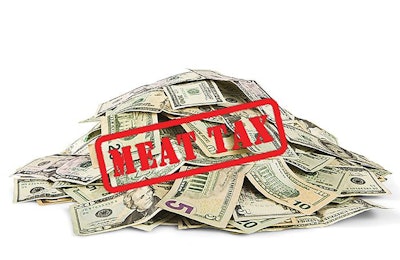
The Farm Animal Investment Risk & Return (FAIRR) initiative released a report (The livestock levy: Are regulators considering meat taxes?) that suggests that meat will fall prey to the same kind of sin taxes that are now used to curb consumption of tobacco and sugar in many countries. The report, which was released to FAIRR members on December 12, 2017, suggests that taxes on meat could be justified by their proponents because meat production “has been linked with a range of environmental, health and social problems. This includes emerging evidence connecting meat consumption with:
- greenhouse gas emissions that exceed emissions from the transport sector;
- an increasing incidence rate of global obesity and associated higher risks of type 2 diabetes and cancer;
- increasing levels of antibiotic resistance;
- threats to global food security and water availability; and
- soil degradation and deforestation.”
Much of the popular press coverage of this report has been focused on meat production and greenhouse gas emissions and the role these may play in climate change or global warming. Make no mistake — whether caused by human activities or not — global warming can be used as a pretext to regulate, tax and control all biological activity on earth. Ultimately, I believe that anti-animal agriculture groups will use global warming more effectively than animal welfare concerns as a means of attacking the livestock and poultry industries.
It is important to recognize that FAIRR isn’t a bystander in the anti-animal agriculture movement. FAIRR was established by Jeremy Coller. The Jeremy Coller Fundation actively promotes “ending animal factory farming.” The foundation has a three-pronged attack on animal agriculture focusing on “animal welfare, human health and global sustainability.”
Poultry meat and egg producers need to be careful not to take the bait and start comparing greenhouse gas emissions with other animal protein products. Poultry may win in these first comparisons, but the next “competitor” would be plant-based protein, not hamburger.
















